#classic Lamont
Text

Actor Lee Marvin with his parents Lamont and Courtenay Marvin - 1942
#lee marvin#lamont marvin#courtenay marvin#usmc#20th century#wwii#ww ii#hollywood#old hollywood#classic hollywood#40s
17 notes
·
View notes
Text

This week on Content Abnormal we present William Johnstone as The Shadow in "The Hoodoo Ship"!
Order We Belong Dead issue #42 via Amazon HERE
Order hardcover book edition of We Belong Dead #41 & #42 HERE
#william johnstone#bill johnstone#lamont cranston#the shadow#radio#otr#classic#the hoodoo ship#woodward dream cruise#we belong dead#we belong dead magazine#we belong dead 41#we belong dead 42#japanese horror#kaiju#josh ryals art#joshua ryals art#joshryalsart#john fogerty#ccr#creedence clearwater revival#born on a bayou#hoodoo#horror host
3 notes
·
View notes
Text
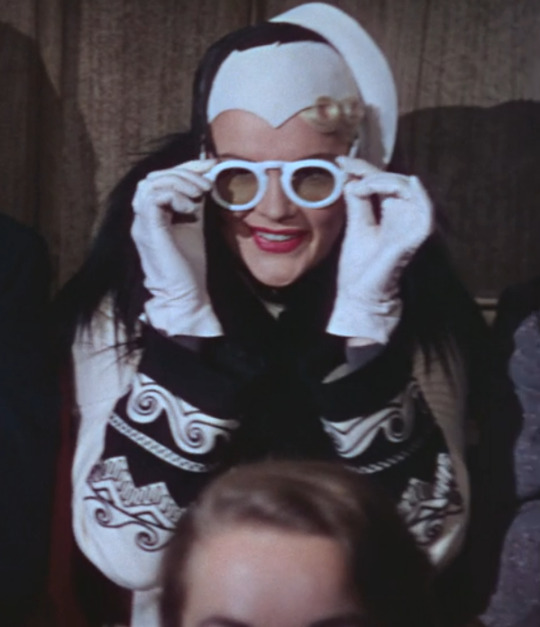

One Dress a Day Challenge
Black and White October
Singin' in the Rain / Jean Hagen as Lina Lamont
This coat and hat are barely seen in the movie, appearing in a short sequence where the cast sneak into an advance screening of their film incognito to judge audience reactions. I love the decoration on the sleeves!
#singin' in the rain#black and white october#jean hagen#one dress a day challenge#one dress a week challenge#movie costumes#musical costumes#old hollywood#lina lamont#1952 films#1952 movies#1920s style#period film#classic movies#classic films#classic hollywood
26 notes
·
View notes
Text
youtube
Meant to reblog but lost it, gone now, so you get the context-free version.
1) Singin’ in the Rain is, in the parlance of its time, the BONG DIGNITY* DING DONG
2) i think most of today’s actors do know tap or are willing to learn, it’s just the corporate side of film that thinks we are as high on AI as they are and nothing else, can you package that synchronized tap and sell it?
2a) yes.
3) Watch Singin’ in the Rain! And also that ep of Murder She Wrote with Donald O’Connor—also tip-top.
* not a typo srsly
#singin’ in the rain#lina lamont my love you viper#i caint make love to a BUSH#classic movies#Youtube
1 note
·
View note
Text
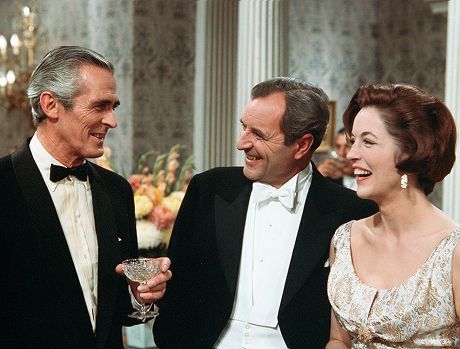
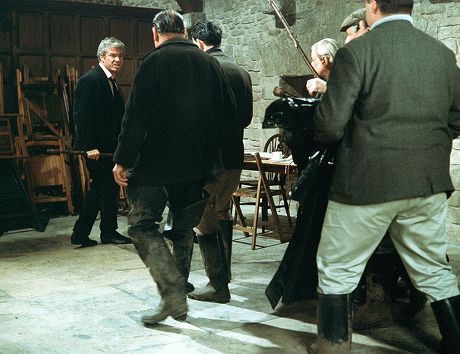


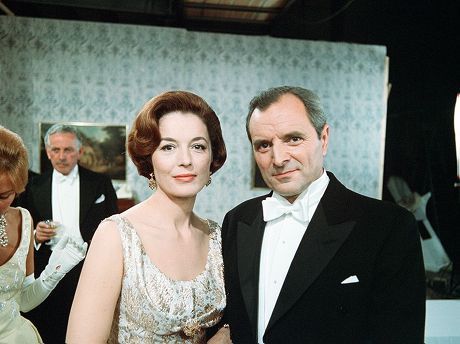
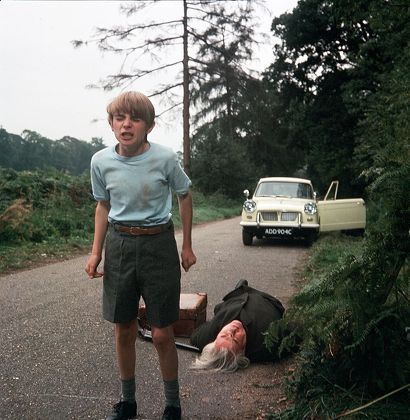


Man in a Suitcase: All That Glitters (1.10, ITC, 1967)
"But I understand that. Cos I help people too."
"Out of kindness."
"For money."
"How much money?"
"Well, how much help do you need?"
"My friend told me that you were difficult. And rude."
"Well, you have very well informed friends."
#man in a suitcase#all that glitters#classic tv#herbert wise#stanley r. greenberg#richard bradford#barbara shelley#michael goodliffe#eric thompson#dorothy edwards#derek newark#norman wynne#duncan lamont#alan baulch#kevin stoney#peter bennett#dickie owen#larry cross#kathleen st. john#the second episode to go into production‚ and after the exposition heavy pilot this was to act as a kind of blueprint episode to show#McGill's world and the kind of life he lived and the jobs he took. he's notably more morally grey here‚ with a mercenary attitude that's at#odds with many of the contemporary brit tv heroes of the time; his fee given here is £100 a week plus expenses (usually altered to#the comparable 300 dollars in subsequent episodes) but his additional offer (1000 pounds to find an abducted child‚ 2000 more to get him#back alive) is startlingly dark. being an early production ep‚ there are several references to McGill's troubles with US Intelligence and#his shady past. the end of the ep is again quite remarkably violent in comparison to ITC contemporaries but Bradford didn't take the idea#lightly: in interviews at the time he stated that he didn't want McGill to always rely on a gun‚ and that if he did use one then he wanted#there to be a sense of the seriousness and of the consequences of that decision. a starry guest cast includes horror icon Babara Shelley in#a role clearly written to be slightly critical of her characters money brains and guts in contrast to her weaker politician husband (it#doesn't work‚ she's just too sympathetic and the criticisms are dumb and misogynistic) and Goodliffe as her spineless husband. all of them#are acted offscreen by that icon of Road Sense (and ig maybe other stuff) Eric T in a powerhouse performance as a gangland creep
3 notes
·
View notes
Text
The 5th Dimension: Greatest Hits On Earth (1972)
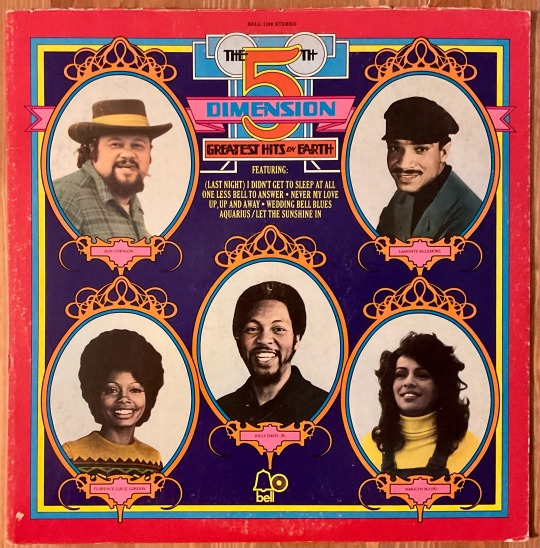

This is a reissue on black labels from between 1976-1978.
Bell Records
#my vinyl playlist#the 5th dimension#ron townson#lamonte mclemore#florence larue gordon#billy davis jr.#marilyn mcoo#bell records#classic rock#60’s rock#70’s rock#pop rock#record cover#album cover#album art#vinyl records
1 note
·
View note
Text
Kenny Wheeler's Masterpiece: "Music for Large & Small Ensembles"
Introduction:
In the realm of jazz composition, few names command as much respect and admiration as Kenny Wheeler. Released in 1990 by ECM Records, “Music for Large & Small Ensembles” stands as a monumental testament to Wheeler’s prowess as a trumpeter, flugelhorn player, and, above all, a brilliant composer. At its core lies “The Sweet Time Suite,” a composition of extraordinary depth and…

View On WordPress
#Anthony Braxton#Classic Albums#Dave Holland#Derek Watkins#Duncan Lamont#Evan Parker#Gil Evans#Henry Lowther#Jazz History#John Abercrombie#John Taylor#Julian Argüelles#Kenny Wheeler#Music for Large & Small Ensembles#Norma Winstone#Oliver Nelson#Peter Erskine#Ray Warleigh#Stan Sulzmann
0 notes
Text
I want to like CRY so much
I just finished replaying it and I have so many opinions, as always. This game is unique for me in that I WANT to like it so badly but it just doesn't quite work. However, I stubbornly replay it and ponder what it could have been because I wish I liked it more. I especially feel this way because I live in New Orleans and its just so CLOSE to being good!
More thoughts under the cut.
PROS:
I actually think they did a great job with the setting. It's raining so hard that the power goes out and the streets are too flooded for cabs? There are weird creatures and bugs around every corner, some of which are messing with your belongings? The best food is from some sketchy stand served by some random Shorty person? Accurate, welcome to New Orleans. I can even forgive Bess for eating crawfish with the shells on with a spoon.
The characters are also good. Lamont is completely underutilized to where I'd never believe he was the culprit, but I can imagine running into all of these people throughout my day and it makes sense that they would all also interact with each other off-screen.
The core mystery is really interesting. It's the classic Nancy-gets-sucked-in-to-a-case-on-vacation scenario, but she really does stumble into the situation by accident in this one and has a personal stake because she gets attacked by the skeleton man. The progression is believable as she starts to unravel the skull mystery and discovers that Bruno's death was actually kind of suspicious.
My favorite ND trope, secret room/hideout/study revealed midgame, with a lot of things to look at and click on, is present.
CONS
The music is kind of a miss. It's not bad, but it should have been so much better. It has this boring CLK old-timey feel and they kind of missed the mark in my opinion. I think a more upbeat track with some brass, maybe something bluesy, maybe something modern would have added more variety.
The puzzles. THE PUZZLES ARE SO TEDIOUS. I hate that we find this book Bruno wrote and it's just a walkthrough to getting a bunch of eyeballs through various boring puzzles for the sake of padding the game. I use a walkthrough for like half of this game every time because I don't find the puzzles fun. My least favorites are the sneeze contraption because there is ZERO confirmation as to whether you're on the right track when you do it, and the tombstone pun puzzle because walking back and forth around the cemetery is SO TEDIOUS and it has zero replay value.
Bruno's house doesn't make sense because it's fairly spacious and kept up on the bottom story and the top floor that we can access is just two horrible moldy rooms. Bruno, you dropped dead from breathing in black mold in your own house, not a heart attack. Trust me when I say I know it's humid and wet here, but there's just no reason for the upstairs to be that uninhabitable indoors.
On a related note, I wish there was more to explore, and no, the cemetery doesn't count. There should be more rooms for Nancy to snoop through (where is Henry sleeping?) and like one more place for Bess to go. Or more things to do and click on in Zeke's aside from just looking at that one box a million times. Or the option to poke around Renee's table when she's away. NOT nearly enough snooping for me.
It's so dark. It's too dark. It could have been like 10% lighter or had a partial daytime element so that I could actually see what I was doing even a tiny bit.
#nancy drew#legend of the crystal skull#in the future this might just be a game i watch on youtube so i don't have to actually do any of these puzzles ever again
21 notes
·
View notes
Text
The Inheritance: what we're willing to do for money

The Inheritance is an upcoming horror thriller film directed by Alejandro Brugués, known for his work on Juan of the Dead. The movie follows a billionaire named Charles Abernathy who, on the eve of his 75th birthday, invites his estranged children back home out of fear that someone or something is going to kill him that night. He puts each of their inheritances on the line to ensure they'll help keep him alive.
The Inheritance stars Bob Gunton as Charles Abernathy, along with Peyton List, Rachel Nichols, Austin Stowell, Briana Middleton and others. The film is written by Joe Russo and Chris LaMont and distributed by Vertical.
Abernathy reveals to his children that he believes he will die by midnight and that there is something dangerous in the house that killed one of their siblings. He makes them stay and work together to survive the night in order to inherit his $2 billion fortune.
The Inheritance is set to have a limited theatrical release on July 12, 2024, the same day it will be available for streaming. The horror thriller has an estimated budget of $14 million.

Alejandro Brugués was inspired to create The Inheritance based on his previous horror work, particularly his 2011 film Juan of the Dead. Brugués is known for blending horror and dark comedy, and The Inheritance appears to continue this style with its premise of a wealthy family forced to defend their patriarch from a deadly threat.
The film's central concept of a billionaire forcing his estranged children to work together to survive the night and inherit his fortune also seems to draw inspiration from classic horror tropes about dysfunctional families and the corrupting influence of wealth.Brugués has stated he wanted to explore these themes in a new high-stakes, suspenseful setting.
Additionally, the director has cited his interest in exploring the idea of "what we're willing to do for money" as a key inspiration behind The Inheritance's plot. By pitting the characters' greed and self-interest against a supernatural threat, the film appears to offer a fresh take on the "dark inheritance" horror subgenre.
3 notes
·
View notes
Text
Gathering of the Greatest Gumshoes - Number 4
Welcome to A Gathering of the Greatest Gumshoes! During this month-long event, I’ve been counting down my Top 31 Favorite Fictional Detectives, from movies, television, literature, video games, and more!
We're nearing the end of this event, my friends.
SLEUTH-OF-THE-DAY’S QUOTE: “The Weed of Crime Bears Bitter Fruit.”
Number 4 is…The Shadow.
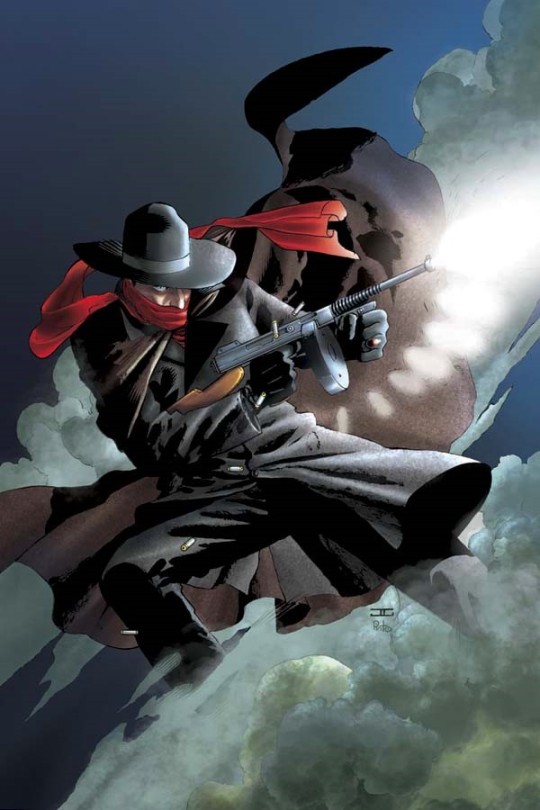
I’ve talked about the Shadow at least a few times in the past (more frequently than that with those closest to me), but for those who are unfamiliar with the character and his world, here’s the basics: the Shadow is a character many consider to be the father of the modern superhero. Several famous “super detectives” take inspiration from the character, either directly or indirectly: most famously, the Shadow was a major inspiration for none other than the Dark Knight himself, Batman. However, his influence can also be seen in characters like the Punisher, Daredevil, various Alan Moore creations (such as Rorschach and V from V for Vendetta), and even freaking Darkwing Duck!
The Shadow was originally created as the narrator/host for a series of crime and horror radio dramas sponsored by a company called Street & Smith. The character became so popular, the company decided to expand on the concept, and began to publish a pulp magazine focused on the character and his adventures. Writer and illusionist expert Walter B. Gibson – working under the pseudonym “Maxwell Grant” – developed the character accordingly. Gibson decided he wanted to create "a hero who had some of the villain's appeal," citing that villains were usually more interesting than typical heroic protagonists. Taking inspiration from his knowledge of stagecraft and the occult, as well as various pieces of classic literature - including Sherlock Holmes, Dracula, Phantom of the Opera, and The Scarlet Pimpernel - Gibson turned the ephemeral narrator figure into a "weird avenger of evil," arguably just as scary as the crooks he fought.
Such was effectively the birth of the Shadow as a fully-formed character. This version got his start in the pulp magazines, most of which were written by Gibson. He was later reimagined for a new radio program, and since then has appeared in a few movies (the most well-known being the 1994 feature starring Alec Baldwin). However, the character – originally created in the 1930s – has survived most prominently via comics. The current company with the rights to the character in comic format is Dynamite Entertainment, but the Shadow has also belonged to DC, Marvel, and Dark Horse at different points in his long career.
The Shadow’s true identity is “wealthy young man-about-town” Lamont Cranston (at least in the radio shows and all the film treatments; the comics and pulps are more complicated). By day, Cranston is a laid-back member of New York City’s elite. However, this demeanor hides a dark side, created by an even darker past: once upon a time, the man who would become the Shadow was a fighter pilot in WWI. His plane crashed in Tibet during a mission, and he was presumed killed in action. Different interpretations of his origins change up what happened next, but one thing is consistent: for the next seven years, he lived in Tibet, and during that time he experienced “all the evil that lurks in the hearts of men.” He eventually met a mystic known as the Tulku, who not only taught him martial-arts, but also gave him the ability to “Cloud Men’s Minds.” With his newfound skills, he returned to New York and became the Shadow: forever bound to an immortal quest to destroy evil.
The Shadow's power to “Cloud Men’s Minds” is less pretentiously described as him having various psychic abilities. He can project illusions, hypnotize people, control their minds, and make himself seem invisible (or, appropriately, like a living shadow), just to name a few examples of his talents. However, while these abilities are certainly useful ones, the Shadow is also skilled in other, more traditional fields: he is a fine marksman, as skilled with his dual-wielding silver-plated pistols as he is with a rifle or machine gun. His learning of the martial arts makes him a skilled melee warrior, and he has at least some knowledge of various sciences (how much varies from version to version) and forensic techniques. The Shadow is also aided by a veritable army of Agents: people he has saved in the past who now do his bidding, acting as his eyes and ears. Probably the most noteworthy are Margot Lane (a glamorous young lady who is his love interest), Harry Vincent (the Shadow’s chief spy, who really only shows up in printed material), and Moe “Shrevvy” Shrevnitz (a cabby who is essentially the Shadow’s chauffeur).
The most interesting point about the Shadow, and where his character’s development shines most intriguingly, is his morality: the Shadow is an objectivist character, who acts as an agent of vengeance against all wrongdoers, no matter the mitigating circumstances. Some would say this is inaccurate, but I would say the Shadow best counts as an anti-hero. He sees the world often in black and white, and obsessively and downright SADISTICALLY faces his opponents. He delights in taunting them with purple prose, laughing as he leads them to destruction, and is often just as frightening as the villains he defeats. Under the surface, there is a soft side to his soul…but if you’re a supervillain, a gangster, or anyone else who might cross his path, start praying.
“For who knows what evil lurks in the hearts of men? The Shadow Knows! HA HA HA!”
Tomorrow, the countdown enters the Top 3!
CLUE: “It is the brain, the little grey cells, on which one must rely.”
#list#countdown#best#favorites#top 31 fictional detectives#gathering of the greatest gumshoes#number 4#the shadow#the shadow knows#kent allard#lamont cranston#radio#pulp fiction#comics#movies#film#serials#walter b. gibson#maxwell grant#mystery#crime fiction#superheroes#noir
2 notes
·
View notes
Text
BEYOND THE TIME BARRIER (1960) – Episode 171 – Decades Of Horror: The Classic Era
“Sterile?” Yes, sterile! And they weren’t talking about surgical instruments. Join this episode’s Grue-Crew – Chad Hunt, Daphne Monary-Ernsdorff, Doc Rotten, and Jeff Mohr – as they blast off to the distant future of… 2024? The movie is Beyond the Time Barrier (1960).
Decades of Horror: The Classic Era
Episode 171 – Beyond the Time Barrier (1960)
Join the Crew on the Gruesome Magazine YouTube channel!
Subscribe today! And click the alert to get notified of new content!
https://youtube.com/gruesomemagazine
ANNOUNCEMENT
Decades of Horror The Classic Era is partnering with THE CLASSIC SCI-FI MOVIE CHANNEL, THE CLASSIC HORROR MOVIE CHANNEL, and WICKED HORROR TV CHANNEL
Which all now include video episodes of The Classic Era!
Available on Roku, AppleTV, Amazon FireTV, AndroidTV, Online Website.
Across All OTT platforms, as well as mobile, tablet, and desktop.
https://classicscifichannel.com/; https://classichorrorchannel.com/; https://wickedhorrortv.com/
In 1960, a military test pilot is caught in a time warp that propels him to the year 2024 where he finds a plague has sterilized the world’s population.
Director: Edgar G. Ulmer
Writer: Arthur C. Pierce
Produced by: Robert Clarke (produced by); Robert L. Madden (executive producer); John Miller (executive producer)
Casting by: Baruch Lumet (uncredited), Sidney Lumet (uncredited)
Music by: Darrell Calker
Production Design by: Ernst Fegté
Makeup Department:
Corinne Daniel (hairdresser) (as Corrine Daniel)
Jack P. Pierce (makeup creator) (NOT the mutants!)
Special Effects by: Roger George
Costumer: Jack Masters
Selected Cast:
Robert Clarke as Maj. William Allison
Darlene Tompkins as Princess Trirene
Arianne Ulmer as Capt. Markova (as Arianne Arden)
Vladimir Sokoloff as The Supreme
Stephen Bekassy as Gen. Karl Kruse
John Van Dreelen as Dr. Bourman (as John van Dreelen)
Boyd ‘Red’ Morgan as Captain (as Red Morgan)
Ken Knox as Col. Marty Martin
Don Flournoy as Mutant
Tom Ravick as Mutant
Neil Fletcher as Air Force Chief
Jack Herman as Dr. Richman
James ‘Ike’ Altgens as Secretary Lloyd Patterson (as James Altgens)
William Shephard as Gen. York (as William Shapard)
John Loughney as Gen. Lamont
Russ Marker as Col. Curtis (as Russell Marker)
Arthur C. Pierce as Mutant Escaping from Jail (uncredited)
Malcolm Thompson as Guard (uncredited)
While testing the latest and greatest airship just above the atmosphere, Major William Allison (Robert Clarke) accidentally travels to the apocalyptic future of… 2024! Little did they know. Beyond the Time Barrier (1960) is a low-budget, sci-fi B-picture from director Edgar G. Ulmer (The Black Cat, 1934; Detour, 1945) and writer Arthur C. Pierce (The Cosmic Man, 1959; The Human Duplicators, 1965). To Chad’s dismay, the plot includes a lot of walking and talking across a set filled with inverted pyramids. Oh, and the mutants… sigh. Check out what the Grue Crew has to say about this B&W, time-travel trainwreck. Also, stick around for the usual batch of feedback from past episodes.
You might also want to check out these Decades of Horror: The Classic Era episodes:
THE HIDEOUS SUN DEMON (1958) – Episode 41: w/Robert Clarke as writer, director, producer, and star
THE BLACK CAT (1934) – Episode 67: directed by Edgar G. Ulmer, starring Bela Lugosi and Boris Karloff
At the time of this writing, Beyond the Time Barrier is available for streaming from the Classic Sci-Fi Movie Channel, Amazon Prime, and Tubi. The film is available on physical media as a Blu-ray from Kino Lorber in the Edgar G. Ulmer Sci-Fi Collection, a trio of films that also includes The Man from Planet X (1951) and The Amazing Transparent Man (1960).
Gruesome Magazine’s Decades of Horror: The Classic Era records a new episode every two weeks. Up next in their very flexible schedule, as chosen by guest host Michael Zatz, is The Hunchback of Notre Dame (1923), another silent scream starring Lon Chaney! Sanctuary! Sanctuary! Incidentally, this will be the Classic Era’s tenth discussion of a silent film.
Please let them know how they’re doing! They want to hear from you – the coolest, grooviest fans: leave them a message or leave a comment on the Gruesome Magazine YouTube channel, the site, or email the Decades of Horror: The Classic Era podcast hosts at [email protected]
To each of you from each of them, “Thank you so much for watching and listening!”
Check out this episode!
2 notes
·
View notes
Text
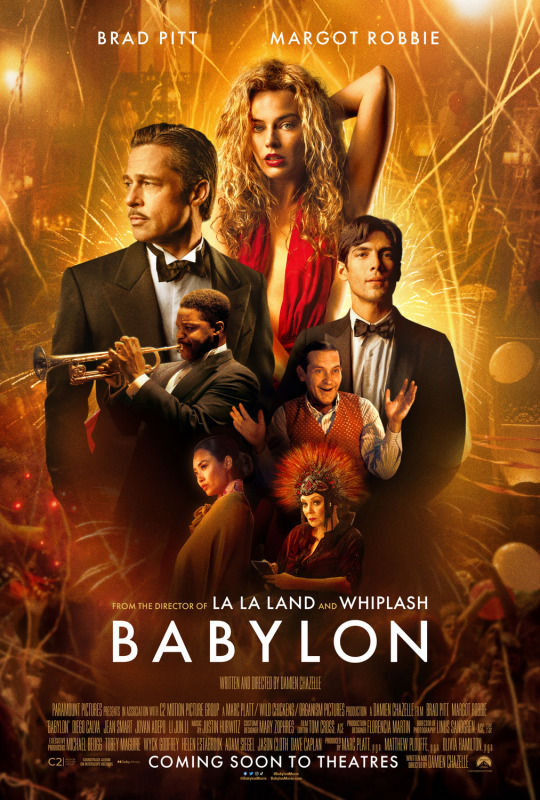
Watched: 09/15/2023
Format: Prime
Viewing: First
Director: Damien Chazelle
So...
I was aware of several things going into Babylon (2022).
It's an original story (of sorts) about the late Silent Era of the film industry and beyond. It's clearly referencing Kenneth Anger's infamous, and not super-accurate, book, Hollywood Babylon, which I have not read, but I did listen to a whole season of You Must Remember this, which covered the subject matter and sought to split fact from legend.
I won't get into the book here, but it's a recounting of possibly/ maybe/ probably-not/ absolutely-not true stories from the era during which the film industry moved to Los Angeles from the East Coast and went kinda bonkers. Sex, death, drugs, mayhem, etc... followed.
If you have a casual interest in Hollywood history, even without specific stories to recall, you could be well aware of this era, of meteoric rises and cataclysmic falls of actors and behind-the-camera talent. It makes today's tabloid stuff look like middle-school melodrama. And, because Hollywood loves a good story, especially one that sounds true, they've been passed down, year after year until Anger codified them in his book. And now we have a nice little package that I remember hearing bits and pieces of in college and whatnot.
Going into the movie, I was also aware that the movie was at least three hours. It was all fictional but referenced the real world of Hollywood from about 1927-1935 or so, and that no one seemed to like the movie all that much. It had a $110+ million budget, and did poorly at the box office.
Having had now seen the movie, it's a three hour movie that is beautifully shot and acted. The design is... interesting.
But it feels so weirdly derivative, the story is delivered by bullet point, and it seems so surprised by things that seem obvious on their face here in the 2020's, that by the film's end - 3 hours later, I have no clue what Chazelle was trying to say or why he wanted to say it.
If this movie is for a broad audience, it feels too specific in what it's covering while filling in no details to give them the full picture of the era while also taking a very, very long time to get to the point with his storylines, while still not making you ever care about the characters.
If this movie is for film history buffs, someone with my cursory knowledge is clearly going to wind up with so many questions, their hand will involuntarily raise repeatedly throughout the film.
Historically and Biblically, Babylon was a city portrayed to be one of wonders and great sin, that punished the faithful, and celebrated what Judeo-Christian ethos found immoral. So, you know, we're very much setting the stage for what we're about to see.
My thesis by the film's end was that Chazelle watched Singin' In the Rain and had the same passing thought anyone who has seen the movie three times will have: that Lina Lamont got fucked and the leads are maybe totally dicks. Ie: this entire movie is kind of a violent response to an American classic and reconsideration of that film's entire arc. Which is... a thing one can do. But if you're going to not just show a better movie during your movie (a Signal Watch Cinema Sin) but confront that movie, you better not miss.
I'm not mad at the movie, and if I were a young movie fan, I would hope this movie would at least spark some curiosity about Hollywood history and the first third-of-a-century of movie making. It's a tough era to access in some ways as the movies themselves were largely lost due to the film-stock of the era and the lack of regard for preservation and vaults of film.* Not to mention that cinema language, use of cinema and cultural cues have all changed drastically since the era, it can take some concentration and work. But knowing who the people were behind those images can certainly help. And this film borrows enough from real stories and fictional ones that it's as good a place to start as any.
The movie wants to be a sprawling, multi-year epic. The type which tends to get the attention of critics, a la Boogie Nights. And much like Anderson's film - or maybe a bit like an Altman picture - it hops around a large cast of characters all working in a similar industry and gives you a peak into their lives and hopes and dreams, and how that plays out over the years.
There are individual scenes and sequences that are going to stick with me, many of them quite good. As a whole, though, that same attempt at an epic means holding any one thought to pull toward the center becomes increasingly muddied.
SPOILERS
Arguably, the lead is Margot Robbie, and as of this writing, I have almost exclusively good things to say about Robbie as a performer. Unfortunately, she's saddled with "the girl you know is going to die young off screen from the minute she shows up" thing that is the flipside to the Manic Pixie Dreamgirl. She has all the trappings of this stock character, from the grim back story and home life to the coke habit and preternatural acting talent. And she's our Lina Lamont, which you'll start putting together the minute she opens her mouth with her Brooklyn accent.
Pitt plays the silent movie star who understands the need for novelty and change, and seems to be reaching for authenticity, which is something he can do in the silent pictures, but once audio is rolled out, you know as an actor over 25 in this movie, he isn't going to survive. And, by the movie's mid-point, you're pretty sure he'll kill himself one way or another. He does. Pitt nails the character, including the bits of bad acting he has to do in character. But he's saddled with such a weirdly predictable curve, it would have been a novelty only if he'd lived happily ever after.
Diego Calva plays a young Hispanic guy living in the shadow of LA's casual racism who moves from odd-jobs for movie producers to a producer/ executive himself, but who - somewhat inexplicably - is supposed to be in love with the train wreck that is Robbie's character he met, like, twice before the movie's midpoint. It's almost grating watching the character, who is admirably played, but whose arc is so thankless, you may be waiting for his scenes to end just so we don't have to see these writing choices play out for the 10,000th time.
My theory about the nearly detached Jovan Adepo storyline, of a Black jazz musician who briefly becomes a star as pictures need sound, is that Chazelle became aware of the warranted criticism of his history of jazz as portrayed in La La Land, and inserted a sidecar storyline where he decided to make good or demonstrate he did so know about Black people doing jazz. But then he really didn't have any ideas for it. Adepo's character barely interacts with the rest of the cast, and he has maybe 10 spoken lines in the whole film. What could have been a centerpiece and novel to many demographics about the Black experience in Hollywood of the era is unsurprisingly ham-handed even as Adepo is perfect delivering his ten lines and doing everything else via minute expression.
There's multiple other characters and storylines to keep up with. Eric Roberts plays Robbie's ne'er-do-well father, Lukas Haas is Pitt's pal and his depressive producer (who you know is going to off himself at the 2/3rds mark, and he hits it like clockwork), the lovely and super-talented Jean Smart is given the off-the-shelf role of the gossip writer that is so enshrined in moviedom, we had this character in Batman and Robin. Flea appears as a volatile movie producer. The fetching Li Jun Li plays essentially Anna May Wong. Tobey Maguire plays the creepy guy who always shows up in the back part of these movies as the characters are having their lowest moments.
And, sure, I'm missing a dozen more.
The movie is currently streaming for free on Prime, and my recommendation is to watch the first 30 minutes, which occur entirely before the titles. Taking place at what we're to understand is a large but not particularly notable fiesta, it's a literal orgy of sex, drugs and jazz, complete with an elephant and accidental near-murder. It's kind of a big joke to stun the audience when the titles hit - you've already borne witness to a hundred different sins, characters, plotlines and ideas - a firehose of opulence, rapaciousness, and overindulgence - both in what's on screen and how it's directed. The camera won't stop moving, the music pounds (Jamie was woken up twice by the soundtrack's thumping), and most of the characters are at an 11.
A bit like La La Land, I'm not sure you ever really top the first scene here. It really had me set thinking "well, maybe people were wrong about the film", because for the first thirty minutes, I was in, even if I was concerned we were getting 3 hours of movie working at this pace (we do not).
Not to sound like too much of a creep, but it's also a very wide-screen take on all of this, not least of which is orgiastic activities, which are never quite the focus of a shot. I think I get why Chazelle chose this - show it in the periphery as a fact-of-life - but it almost feels like Chazelle isn't quite confident in his own thesis after getting all of these people to show up and be naked. Or else the MPAA lost their minds at a movie that actually shows boobs and some dick in 2023.
If you want to stick with it, I'd include everything up through maybe the first hour as keeping me invested as we move onto a day in the life of a silent-era studio with appropriately pitch-black humor, everyone doing their best, movies all being shot side-by-side, surprises and discoveries and the alchemy of winging-it film making. And, of course, an insane German director.
It's a stunning recreation of a period when Hollywood would both film light comedies alongside westerns (no sound issues to worry about) and would, in fact, hire casts of thousands to fill gigantic sets. And everyone was treated a bit like cattle.
youtube
The thing is - Hollywood is full of very real stories and well-known legends that are bleaker, funnier, and at least as dark as everything Chazelle puts on screen. He references some of those things, borrows from others (Clara Bow famously partied routinely with the USC football team, etc...). There are well-documented trials that spun out of some actors lives, stories of weird deaths and suicides. It's all available for a willing writer/ director.
So... I guess an amalgamation lets them kind of do whatever they want? So why land of the completely obvious?
As sound comes in, though, we get the too-tempting fruit of showing the first attempts at sound recording and "boy, figuring this out was hard", which is true. But it was also something they figured out with wildly impressive velocity - necessity became the mother of invention. And it's already covered in detail in the movie this movie hopes you've already seen in Singin' In the Rain. So it can feel redundant. Which kind of begs - who is the movie for?
The movie specifically recreates elements from Singin' In the Rain movie, implying that the 1950's film is, in fact, referencing the characters in our parallel universe here. Funnily enough, Babylon does loop back to the 1920's studio produced, all-star Singin' in the Rain "we've got sound" promotion done at the time that Singin' in the Rain's title was referencing (but which isn't in that movie).
youtube
(became aware of this years ago in a Joan Crawford doc)
And, fair enough. Like I said earlier - Singin' In the Rain does make fun of people who lost careers to unshakeable regional accents and who lost their way in the transition. Even in my film school reading in the 1990's, this period was eyed with a sort of retroactive disgust. And, I agree, it was a tragedy in it's way.**
To extend this thought, the conclusion of the film is how we go through transition after transition, Hollywood shedding people as it goes along.
Just recently, Peacock's excellent Poker Face paid tribute to the great FX maestro and stop-motion animator Phil Tippet, who essentially became a dinosaur himself overnight as Jurassic Park introduced the world to CG dinosaurs.*** Babylon is a movie, in many ways, about the casualties of technological innovation and the greed for novelty by movie audiences.
But it's also a movie that wants to be about how movies became respectable alongside sound, and the impact there. However the presentation of that idea is not.. great. Nor is any explanation given as to how or why this was suddenly happening - you kind of have to just realize rich people were moving west at the time and mixing with low-brow actors in Los Angeles. But the weird malevolency feels like Mean Girls more than anything honest about adults.
Further, the career-ender for our one Black character is a justifiable moment of fury cribbed from real issues cropping up as Southern exhibitors let it be known they wouldn't show things like "mixed race" bands performing - something that wound up impacting what one would take as a general impression of how race worked in other parts of the US at the time. But, yeah, they ask a Black character to do Blackface to better fit the way more dark-skinned members of the band appear.
Maybe it's my 4K TV's color settings are inadequate or something, but the actor wasn't particularly light-skinned, nor the other actors particularly dark-skinned. Nor was lighting or other ideas trotted out before someone reached for fucking shoe polish. And, fair enough, horrific and painful sequence. But there's no follow up, really. We see the musician has gone back to just performing for audiences - he never says anything. It's... a very strange lack of giving the character a voice of his own.
There's suggestion that the morals squads have begun to crack down on Hollywood, but no filling in the blanks as to why - which is a rich tapestry of reasons, really. 90% of which was political posturing bullshit and campaigning for boring cultural hegemonization. But at the same time, this movement is impacting our lead characters and in part why the worst part of the party scene shown at the beginning goes underground and metastasizes into something infinitely darker (I have no clue if this is based on anything, but it's wacky!).
Things I don't entirely understand include
why Chazelle seems averse to the actual wardrobe and hairstyles of the period. It's not just Robbie's hair, make-up and wardrobe. Almost all of the women in the film look like they stepped out of a club in 2022, except for Jean Smart. And I don't know why - if you're making this movie, you decide to *not* embrace flapper chic, the up-do's and headbands of the era. I mean, if he thought "well, this could take place NOW", well... every other detail is pretty period specific, so it's just confusing.
Or why his few clips shown of what is supposedly filmed for the movies being made bear minimal resemblance to the actual films of the era, which never saw a camera not in plane to the horizontal surface except in wide shots or establishing shots.
similarly, the soundtrack never feels remotely like that of the era, which I assume is part of point 1's "could be anytime" thing. Still, the soundtrack is pretty solid! But you're gonna hear the same refrains over three hours, and that's... a lot.
And it gets in the way of whatever points he's trying to make.
If the movie has a scene where I think everything just absolutely fails, that may be the epitome of the film, it's the final meeting of Jean Smart's gossip columnist and Brad Pitt, who is realizing he's on his way out, his career past faltering to wrapping up. He's no longer Hollywood's A-List leading man, and he'll be in supporting roles to give clout to movies that aren't going to be good and need his stilted gravitas. And then..?
Somehow I guess Pitt just enters Smart's house? (okay) And then confronts her about the front page article she's placed about how he's washed up.
Smart has demonstrated for decades that she's truly one of the greats. She's had a late-career renaissance that must drive her contemporaries insane, turning in amazing performances one after another. Here, she's given what is supposed to be a profound speech about how they're just part of a continuum of people in their jobs and roles. And how this will go on forever, but it's okay, because Pitt will be immortalized on celluloid.
Chazelle has an idea that this is matter-of-fact, shown in the most pedestrian way possible.
The speech is widely open for debate. It's shot like a scene in a TV hour-long drama while having absolutely nothing you haven't heard anywhere before, from Sunset Boulevard to name-your-movie-about-the-movie-industry. And I can't figure out if he thought the idea was boring and hollow, or if he thought this was somehow profound and muffed it.
Either way, it's a crucial moment for Pitt's character, and the movie does want to sell the idea that people want to be part of something bigger, and that's why they're in Hollywood. So the notion that being part of something bigger also means the show goes on without you is quite the blow - nor does Smart's speech necessarily make that connection, that's up to us.
I'm not sure Chazelle sticks the landing of the "and therefore..." bit of it as the film accelerates into the inevitable tragic conclusions for each character. I want to know how many times Smart's character has given this speech. I want to know if she's exhausted by it. I want her to say who came before and who will come next. I want it to feel like it matters and isn't an obligatory part of the film, a check-box in a film about Hollywood history where the audience knows what's coming for everyone, and we're working with that ironic tension.
I hope this isn't just a "here's what I would have done" moment. Smart is so good, she papers over the inadequacy of the scene, just as Pitt's character is a hired gun to paper over scenes in his mediocre films. But, nonetheless, the scene ended, and I was like... so, that's it?
And then braced myself for the wholly perfunctory ending.
Look, the movie ends on a montage meant to say something about the continual change in motion pictures, and, as always, point back to the start in those silent pictures and say "wasn't this pure? Look what we had!" but we all know that's some hand-wavy stuff. Or maybe it's a warning to all of Hollywood that they're the dinosaurs even now. Anyway, yeah, time and technology move on.
But landing those ideas is a complicated thing. And wrapping them in the package of some boring characters and celebrating excess (and let's not pretend Hollywood ever really stopped. I've seen The Oscars.) buries your thesis, making it's delivery the same bullet-point concept as you made everything else.
I opened by saying I don't know what Chazelle was trying to say or why he wanted to say it. I can point to what I've pointed to about specific ideas, but very little of it is novel or a new take. It feels processed through prior films touching on specific ideas on the same material, and pieces borrowed from here and there. But if he has something illuminating to say about any of it that was his own thought rather than echoing back current film-buff consensus, I didn't find it. And if he's borrowing from other films and reflecting back what I've been told, I'm hard-pressed to not just spend time drawing comparisons and asking questions. In the end, I was waiting for some unifying argument or novel concept, and it just never arrived.
Like I say, I actually liked many parts of the film. I like that Chazelle swung for the fences. I think everyone in the movie turned in sterling performances. But in the end, this thing just got away from them. And at 3 hours, I am not rewatching any time soon to see how wrong I was.
In some ways, this movie seems like it would have been a tremendous 10-episode thing on Prime. All the things the movie can't make time for, building up characters into three-dimensional beings instead of outlines. Giving the audience a chance to get invested and feel some sense of actual pathos when anything occurs instead of "oh, ok. Check that off, I guess.". But Chazelle is making movies, and that's television. And if we're not going to change to meet the new format, we might just get steamrolled.
*for more on the path and history of the actual film reels of the silent era and what happened, I recommend viewing Dawson City: Frozen Time
**here's a fun thought experiment: what if Hollywood had embraced the Brooklyn accent? Given that we all now sound weirdly region-free in the US - based more on accents from television and movies than our own parents, would we all be speaking with some version of Brooklynese?
***ironically, the shot from JP used to illustrate this point was of a puppet dinosaurs
2 notes
·
View notes
Text
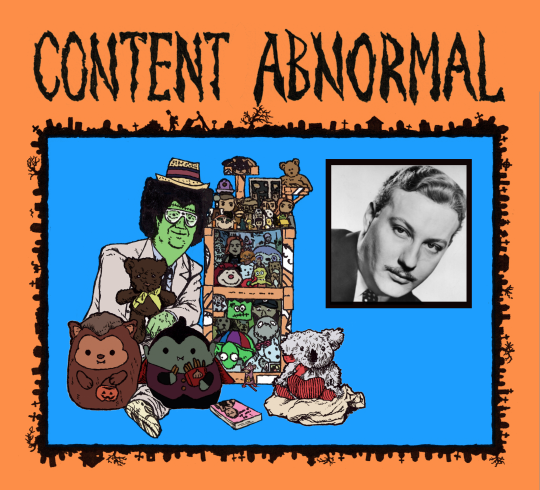
This week, for our 300th EPISODE, we present the radio adventurer we started it all with way back in September of 2018, THE SHADOW! Bret Morrison stars as the cackling crimefighter in "The Phantom Of The Lighthouse"!
#the shadow#lamont cranston#bret morrison#grace matthews#margo lane#otr#classic#radio#horror host#frankentyner#content abnormal#episode#300#300th#celebration#milestone#the phantom of the lighthouse#upper peninsula#michigan#michigan up#u.p.#lighthouses#history#not of this earth#roger corman#paul birch#dick miller#1957#the twilight zone#mr. garrity and the graves
1 note
·
View note
Text
Faye Webster's Laundromat Experience

by Liesl Miranda
On a Wednesday night at Charlotte, NC's Fillmore Theater, Faye Webster’s delightful blend of warm vocals, electric guitar jams, pedal steel licks washed over the sold-out crowd. Nostalgia and playfulness sparkled throughout the whole set, complete with a shower of actual bubbles and a few Minion cameos (when asked by an audience member, without hesitation she stated that her favorite Minion is Kevin). Backdropped by a giant hanger and white tee and flanked by washing machines and racks of blue t-shirts hanging out to dry, Faye Webster transported us into a laundromat experience unlike any other.
Benét opened up the night, winning over the room easily with his smooth tunes and cheerful banter with the crowd.
Faye started her performance with But Not Kiss, a song off her newest record Underdressed at the Symphony. The initial crooning lines were immediately grounded with Charles LaMont’s tight drum beat, Noor Khan’s steady bass, and Annie Leeth’s bright piano riff, and was later topped off with sprinkles of pedal steel courtesy of Matt “Pistol” Stossel. The set continued on with a sweet mix of songs off the new album (“Lego Ring” complete with Faye’s Singsongorama game animations) and past album classics including “Right Side of My Neck” and “In a Good Way” - all of which the crowd happily swayed and sang along to. The harmony across all the members of the band made the set seem effortless, allowing each audience member to melt into every song as if we ourselves were blue tees in a laundry cycle set on gentle, swirling around in waters of musical bliss.
Faye Webster’s tour has just begun, with US and Canada shows spanning until October of this year. You can find her list of tour dates here. Be sure to check out our full gallery of photos from this concert below!



















#faye webster#charlotte nc#by liesl miranda#live music#live music photography#music#heartsleeve magazine#music publication#indie music
0 notes
Text
Movie Review ~ Nowhere Special
Channeling a classic theme of parental devotion, Nowhere Special opts for simplicity and raw emotions instead of sweeping melodrama built to milk your tear ducts for every drop.
Nowhere Special
Synopsis: When John is given only a few months to live, he attempts to find a new, perfect family for his three-year-old son, determined to shield him from the terrible reality of the situation.Stars: James Norton, Daniel Lamont, Eileen O’Higgins, Valerie O’Connor, Valene KaneDirector: Uberto PasoliniRated: NRRunning Length: 96 minutes
Review:
You only have to read the short plot…
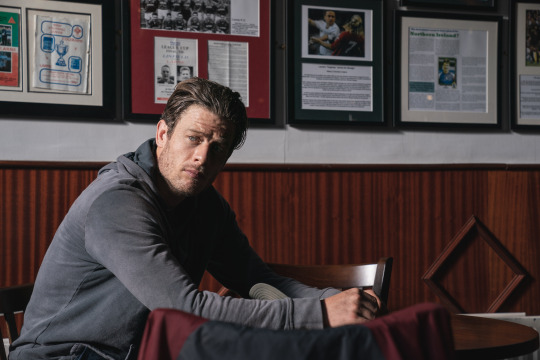
View On WordPress
#Children#Daniel Lamont#Eileen O&039;Higgins#Family#Illness#James Norton#Nowhere Special#Parents#Son#Uberto Pasolini#Valene Kane#Valerie O&039;Connor
1 note
·
View note
Text
Blossoms Needle In A Haystack
youtube
Cover version of a motown classic written by the trio Brian and Eddie Holland with cousin the late Lamont Dozier.
0 notes